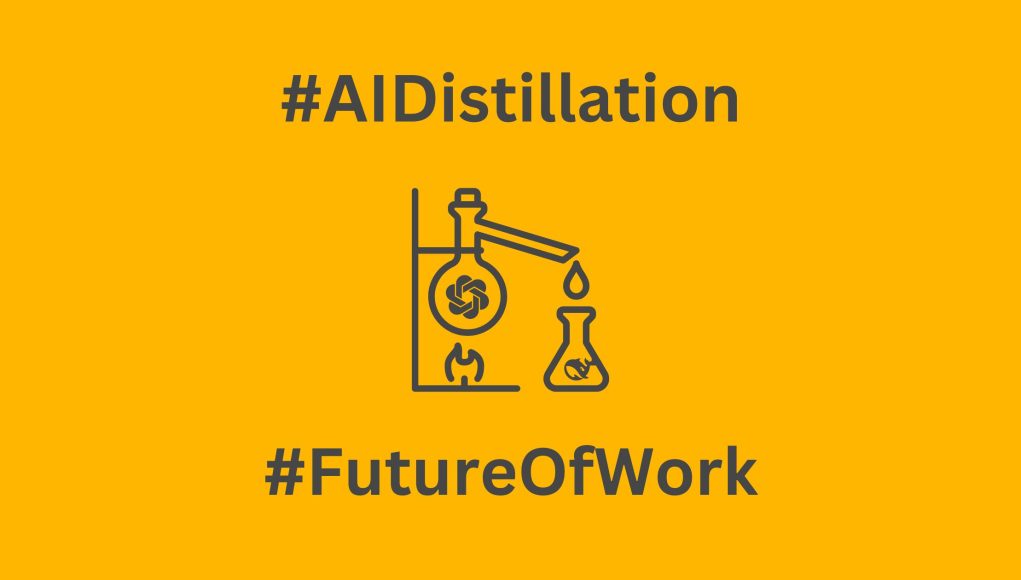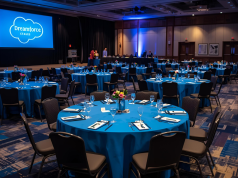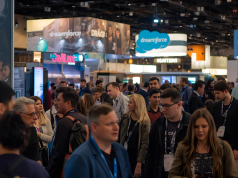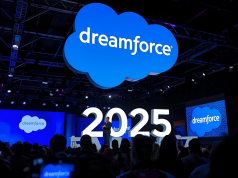If you’ve ever brewed a cup of coffee, you’ve engaged in a primitive form of distillation. You take raw beans, grind them, and pass hot water through—extracting the essence while leaving the excess behind. The result? A potent, targeted output designed to energize rather than overwhelm.
Organizations today, however, are doing the talent equivalent of dumping entire coffee beans into cold water and hoping for espresso. They’re over-hiring, under-training, and drowning in inefficiencies. AI distillation teaches us a crucial lesson: less isn’t just more—it’s smarter. Instead of bloated, generic systems, AI distillation refines intelligence into smaller, sharper, more targeted models. Companies can (and should) apply the same principle to their workforce strategies.
Let’s go deeper into how distillation applies to talent strategy—why it matters, and what organizations can learn from it.
1. Refining Talent vs. Importing It: The Case for Upskilling Over Hiring
In AI, large models are expensive and slow to deploy. Instead of running a massive model every time, distillation transfers knowledge into smaller, faster, cheaper alternatives. The distilled AI model doesn’t lose intelligence—it just operates more efficiently.
Companies should think of their workforce the same way. Instead of throwing money at expensive external hires, what if they distilled knowledge into existing employees? Upskilling employees is like training a smaller AI model—it’s faster, more cost-effective, and culturally aligned.
Story: The Airbnb Reset
During the pandemic, Airbnb faced a crisis. Instead of hiring new teams to pivot the business, they upskilled their existing employees—engineers became UX specialists, marketers became data analysts. As a result, Airbnb rebounded faster than competitors who took a more traditional (and expensive) hiring-first approach.
Lesson: Distilling expertise into your current workforce is often cheaper, faster, and more resilient than chasing external hires who take months (or years) to integrate.
2. Precision Hiring: Finding the 10x Worker Instead of the 10 Workers
AI distillation strips out redundant parameters while preserving the most useful intelligence. It’s not about having more neurons—it’s about keeping the right neurons.
Most hiring today follows the opposite model: organizations overhire, create redundant roles, and struggle to identify who is truly high-impact. Instead of building massive teams, companies should identify and refine their highest-leverage talent.
Story: The NASA Space Shuttle vs. SpaceX
NASA’s Space Shuttle program was an engineering behemoth—requiring thousands of employees, billions of dollars, and massive operational overhead. Meanwhile, SpaceX distilled the same intelligence into a smaller, more efficient workforce. The result? SpaceX launched rockets for a fraction of the cost, proving that targeted, distilled expertise beats bloated bureaucracy.
Lesson: The future of work isn’t about adding more bodies—it’s about optimizing for high-leverage talent. A smaller, elite team with refined skills will outperform a bloated workforce weighed down by inefficiency.
3. Specialized vs. Generic Talent: Distilling the Right Skills for the Right Moment
A distilled AI model isn’t just smaller—it’s more targeted. If you need a chatbot for customer support, you don’t use an all-purpose AI; you fine-tune a specific, lightweight model for the task.
The same should apply to talent. Companies often hire “generalists” when they need “specialists.” This leads to skill mismatches, inefficient workflows, and lower productivity.
Story: The Michelin-Star Kitchen vs. a Buffet
Picture a Michelin-starred restaurant. The chef doesn’t need a hundred cooks—just a small, highly trained team where each person has a precise role. Now, contrast that with a buffet-style kitchen, where a dozen cooks make generic, forgettable food for the masses.
Many companies operate like buffets: hiring broadly, but lacking depth. Instead, they should distill talent into precise, high-impact specialists who deliver far greater value.
Lesson: The future of work is about fine-tuning skills to the problem at hand, rather than over-hiring generalists who lack depth.
4. Adaptive Talent Models: Smarter, Not Bigger
AI distillation isn’t just compression—it’s adaptation. It creates lightweight, specialized models that outperform bulkier alternatives in specific scenarios.
Companies should build teams the same way. Instead of rigid job roles, what if teams were modular, flexible, and easily fine-tuned? What if, like distilled AI models, they could be repurposed and deployed efficiently based on need?
Story: The Navy SEAL Approach to Business
Navy SEAL teams don’t operate like traditional military units. Instead of large forces, SEAL teams are small, highly adaptable, and trained to take on multiple roles. They can switch between intelligence gathering, combat, and diplomacy seamlessly.
Companies that embrace this modular, adaptive approach—where teams can quickly upskill and redeploy—will have a massive advantage over traditional, rigid workforce structures.
Lesson: Smaller, distilled teams can move faster, adapt more efficiently, and outperform larger bureaucracies.
Conclusion: The Future of Work is Distilled
The companies of the future won’t win by hiring more people. They’ll win by hiring (or developing) the right people—and fine-tuning their talent strategies for precision, efficiency, and adaptability.
Key Takeaways:
✅ Upskilling is smarter than over-hiring. Don’t buy intelligence—build it. ✅ Precision beats scale. A 10x worker is more valuable than 10 average ones. ✅ Specialization is key. Distilled, targeted skills outperform generic talent. ✅ Agility is an advantage. The best teams aren’t just lean—they’re adaptable.
Like AI distillation, the goal isn’t just to shrink—it’s to sharpen. The future belongs to companies that can extract and refine the highest-impact talent while eliminating waste.
Much like the finest whiskey, the best talent isn’t about quantity—it’s about quality, precision, and refinement.




























